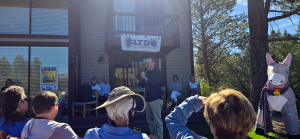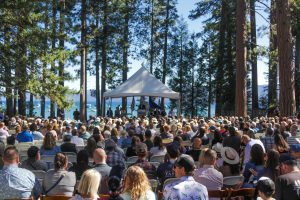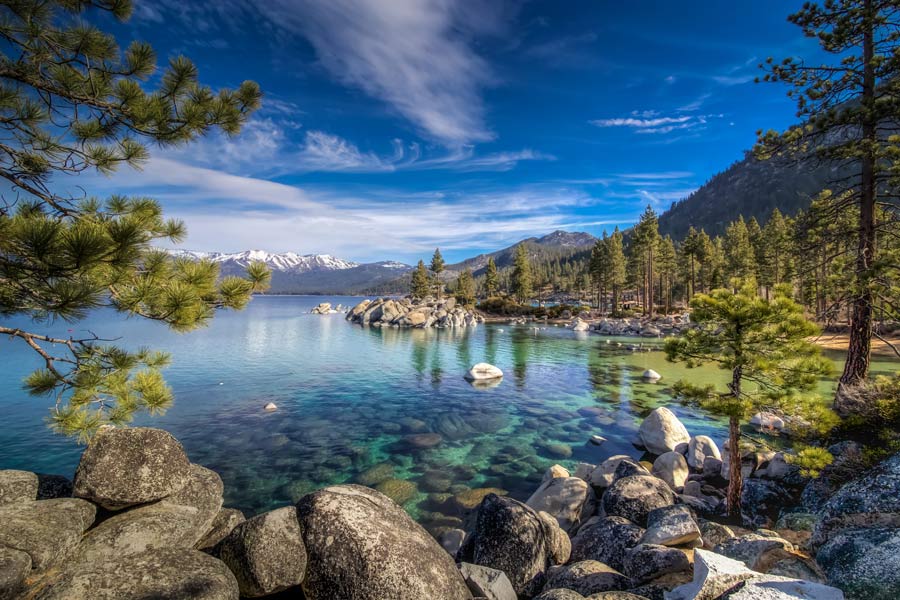American blues inspired the British Invasion
Britain’s discovery of the blues should have left America red-faced.
From the Rolling Stones to the Animals and the Yardbirds, those bands defined virtually all of the music from the British Invasion as blues.
Taj Mahal, a bluesman from the United States, summarized the British Invasion: “The Brits essentially rubbed the Americans’ noses in the fact that they had this music in their own backyard and they didn’t even take care of it.”
From the other side of the pond, Moody Blues drummer Graeme Edge agreed. “I must agree with Taj Mahal’s ‘rubbing their noses in it,’ ” he said. “I wouldn’t have put it that way, but I must say the man has a delightful turn of phrase.”
The Moody Blues’ first album featured entirely blues songs. However, the bandmembers realized that their interpretation of the blues was not authentic. On their second album, the Moodys introduced the mellotron to their sound, which became their own, and a departure from their initial attempt at blues.
“Even The Beatles said they were a blues band, but Paul McCartney said it just came out sounding like us,” said Mick Martin, a blues harmonica player and a disc jockey on KXJZ in Sacramento.
England’s first exposure to the blues came in the 1950s, when acoustic country bluesmen Sonny Terry, Browny McGhee and Big Bill Broonzy performed there.
In 1958, Muddy Waters brought his driving, amplified electric guitar sound to the U.K.
Broonzy had told European newspapers that he was the only living U.S. bluesman, which drew the attention of Chess artist, arranger and songwriter Willie Dixon, who collaborated with German promoters to create the American Folk Blues Festival.
Broonzy was wrong. Most of the great bluesmen were still alive, and from 1962 to 1989, the American Folk Blues Festival featured artists like Waters, Buddy Guy, John Lee Hooker, Sonny Boy Williamson, Lightnin’ Hopkins, Son House and Howlin’ Wolf.
Eric Burdon (the Animals), Mick Jagger (Stones), and Eric Clapton (Yardbirds) reportedly attended the early the American Folk Blues Festivals.
“You name a band from the British Invasion, and pretty much every one of them started out playing the blues,” Martin said. “They weren’t thinking they were blues traditionalists. They were just playing what they heard and liked. So Fleetwood Mac would go from traditional blues to ‘Oh Well’ and ‘Rattlesnake Shake.’ People would ask, ‘Is that blues or is it rock?’ (Fleetwood Mac guitarist) Peter Green was quoted as saying, ‘If it’s a slow song it’s the blues, if it’s a fast one it’s rock.’ “
But the blues were unappreciated in the states, and not just by white audiences.
“Muddy Waters and Howlin’ Wolf and the genuine blues guys were being ignored because they were thought to be too country,” Martin said. “If you’re sitting in your pickup listening to John Lee Hooker on your eight-track, that’s not where the Martin Luther King-inspired black community wanted to go. They were listening to jazz and Motown, and even Stax.”
The British came directly to the source. Louisiana-Texas piano great Marcia Ball echoed Taj Mahal’s analysis almost word for word: “It was the Rolling Stones and those guys who brought the blues back and put it in our faces.”
Like the British, Tahoe guitarist Wesley Orsolic drew inspiration from the music while growing up in Croatia, and he decided to move to the U.S.
“The British came very close to the authentic thing, but I can always hear the difference,” he said. “You have to live here and experience American life to understand. I liked this music and I wanted to go to the source.”
Onnie McIntrye of the Scottish group Average White Band, who was a fan of Motown’s funk and Stax’s soul, felt the same way: “They were more soulful and more accurate,” he said. “You just go to the source and hope it rubs off on you.”
McIntyre returned from his first U.S. trip with “armfuls of records.” He eventually moved to America.
Taj Mahal appreciated the British artists’ arrival.
“The Americans would take their blues watered down,” he said. “The British went straight over the heads of the Elvis syndrome ” you know, here I’m a white boy playing black music, everybody should be looking at me. They just went over that and said, ‘What about the guys who actually put that stuff together?’ How about going to his door and learning that, and then turning around and saying, ‘This is where I got it.’ I really appreciated that.”
The British Invasion was a snapshot in time that left a lasting lesson.
“If you’re a musician and you can play well it doesn’t matter what your ethnic background is,” Martin said. “It’s a model for the world. If everyone could have the same kinds of acceptance that musicians have it would be a much better world.”

Support Local Journalism

Support Local Journalism
Readers around the Lake Tahoe Basin and beyond make the Tahoe Tribune's work possible. Your financial contribution supports our efforts to deliver quality, locally relevant journalism.
Now more than ever, your support is critical to help us keep our community informed about the evolving coronavirus pandemic and the impact it is having locally. Every contribution, however large or small, will make a difference.
Your donation will help us continue to cover COVID-19 and our other vital local news.










